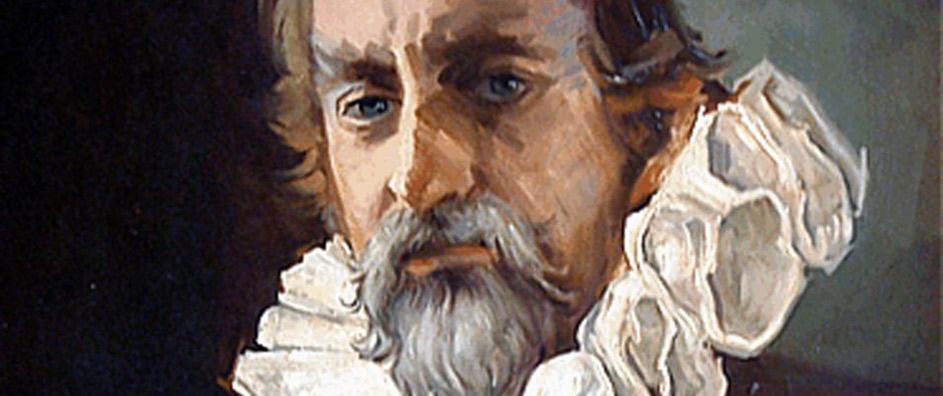The tale of the First Unitarian burned at the stake serves as a poignant touchstone in discussions surrounding courage, conscience, and the unyielding pursuit of truth. This narrative not only illuminates the complexities of the intersection between faith and societal norms but also compels a reevaluation of how individual conviction can catalyze profound societal change. A deep dive into this historical episode exemplifies the valor that accompanies unwavering adherence to one’s beliefs, shedding light on the Bahá’í teachings that promote a vibrant dialogue around conscience and moral integrity.
In 16th-century Europe, the Reformation sparked tumultuous shifts in religious ideology, leading to fervent debates about faith, morality, and the relationship between church and state. The First Unitarian, often identified with figures such as Michael Servetus, emerged amid this ideological maelstrom. Servetus’s challenge to orthodox Christianity, particularly his denial of the Trinity, was not merely an intellectual affront but a significant declaration of one’s right to religious freedom. His eventual martyrdom, culminating in his execution by fire, encapsulates the ultimate price paid for adherence to personal belief systems in a claustrophobic socio-political milieu.
This historical episode resonates deeply with Bahá’í teachings, which advocate for the paramount importance of independent investigation of truth. The Bahá’í principle emphasizes that every individual has the responsibility to engage with their conscience, examining beliefs through the prism of their own understanding rather than through inherited dogma. The courage demonstrated by the First Unitarian echoes the Bahá’í exhortations to transcend societal conditioning, asserting the necessity of personal discernment in matters of faith.
Central to the narrative of the First Unitarian is the concept of courage. The act of standing resolutely for one’s beliefs in the face of monumental adversity necessitates a profound inner strength. Courage, within the Bahá’í framework, is not merely the absence of fear; rather, it is a conscious choice to confront challenges associated with spiritual truth. This notion transcends the physical act of defiance against tyranny, encompassing a holistic approach to moral integrity that emboldens others to pursue their own paths of enlightenment.
The Bahá’í teachings illuminate the transformative power of courage in conscience, fostering an awareness that encourages individuals to question prevailing narratives and pursue truth unrepentantly. The martyrdom of the First Unitarian serves as a stark reminder of the sacrifices historically endured by those who have championed the cause of religious freedom and intellectual autonomy. Reflecting upon this event evokes a critical discourse on the intersection of spirituality and morality, challenging contemporary believers to adopt a stance of unwavering commitment to their values.
Moreover, the exploration of conscience through the lens of the First Unitarian’s experience prompts a fascinating inquiry into the ethical underpinnings of personal belief systems. The Bahá’í faith advocates for an ethical framework grounded in the principles of justice, equity, and compassion. This ethical construct becomes imperative as individuals grapple with their own beliefs, particularly contemplating how their actions align with their understanding of divine guidance. Each thought, word, and deed manifests from an amalgamation of personal conviction and societal influence, thus urging a reflective engagement with the nature of conscience itself.
Transitioning to the broader implications of this narrative, one must examine the societal structures that historically propagated intolerance toward religious dissenters. The trial and execution of the First Unitarian were emblematic of a systemic resistance to divergent beliefs; these structures often sought to suppress individualism in favor of conformity. The Bahá’í viewpoint champions the sanctity of diverse beliefs, positing that each religion symbolizes a chapter in the ongoing narrative of humanity’s quest for understanding the divine. This commitment to inclusivity cultivates an environment conducive to dialogue and cooperation, ultimately fostering societal harmony in lieu of disharmony.
In the contemporary setting, the legacy of the First Unitarian serves as an inspiration for present-day advocates of religious liberty and social justice. The narrative challenges individuals to embrace a multifaceted understanding of conscience that values moral courage. This exhortation extends beyond mere tolerance; it demands an active engagement with differing perspectives, facilitating robust discourse characterized by affection rather than animosity. Such a paradigm shift invites curiosity and a willingness to explore the complexities of faith in a global context.
Additionally, the haunting image of a martyr engulfed in flames serves as a clarion call that resonates across epochs, urging contemporary believers to reflect on their own convictions and the potential repercussions of their steadfastness. The interplay between morality and societal acceptance becomes starkly apparent. The Bahá’í doctrine encourages individuals to confront societal norms, embrace their moral compasses, and advocate for their beliefs even in the face of adversity. In doing so, one not only honors the legacy of those who came before us but also contributes to the unfolding narrative of spiritual evolution.
In essence, the First Unitarian’s sacrifice embodies an essential aspect of the human condition: the quest for authenticity in belief. The Bahá’í perspective reinforces the impetus to transcend superficial conformity, urging individuals to delve into the depths of their consciences as they forge new understandings of faith. It is through the courage exemplified by those who dare to confront inequity and injustice that the seeds of change are sown. As the world collectively endeavors to acknowledge and celebrate diversity, the stories of martyrs like the First Unitarian remind us of the immense power of conviction and the enduring potential for transformative dialogue about conscience and faith.
